DETROIT — Volunteers at Wayne State University are working to inform Arab American men about colon cancer and how to get properly screened for it, specifically targeting those aged 45 and older through a program called Trimming the Risks. As medical research in the MENA (Middle Eastern North African) category is incomplete, this group’s efforts strive to combat that disparity through education.
To build trust and foster relationships with Arab American men, barbershops have become a hotbed for this initiative, as they’re places they frequent. The group has partnered with barbershops across the Metro Detroit area, educating barbers and providing them with resources to give their clients. Now with advancements made within the initiative, the information is provided via video that customers can watch on iPads provided to them as they get haircuts.
Barbers can choose between two tiers of the initiative, both offering $10 compensation to customers who choose to participate.
Pilot A takes place in the barbershop, where clients are given iPads — while waiting or during their appointment — to complete a survey and watch an informative video on colorectal cancer, available in both English and Arabic.
Pilot B allows clients to do this at home. Barbers provide the clients with brochures with a scannable QR code linking to the same survey and video. If the customer takes additional action and visits their primary care doctor to discuss colorectal cancer, they receive additional compensation in the form of a $20 haircut voucher.
Led by Wayne State University professor Dr. Morhaf Al Achkar, the Trimming the Risks team also includes students and volunteers who help elevate and expand this initiative. In a video call with The Arab American News, the volunteers — including Yasmin Snounu, Ali Fakih, Faten Abda, Hajir Alobaidi, Mahmoud Saad and Dana Sunbulli — discussed their individual roles within the project, emphasizing how each person contributes a vital piece to the puzzle. They also highlighted their successes while also sharing ways they hope to expand their work.
Al Achkar is an associate professor at Wayne State University, an associate director for education at Karmanos Cancer Institute, a primary care doctor and a stage 4 lung cancer survivor. He also holds a PhD. He told The Arab American News that after moving to WSU at the end of 2023, there was an announcement for a funding mechanism of around $75,000 provided by the DMC (Detroit Medical Center) Foundation — now rebranded as the Community Foundation for Southeast Michigan. He said he also negotiated with the Karmanos Institute to receive an additional $50,000 donation.
This funding mechanism targeted projects grounded in health promotion and community engagement elements.
“This is not research; this is more of a service to provide access and to expand the connection with our different communities,” Al Achkar said. “Finding spaces that are trusted to use so we can from there share medical information to individuals from our community that have not accessed this information is really the essence of the work.”
Lunch and Learn
An additional piece of the project involves “Lunch and Learn” events held in various mosques and churches, targeting Arab American men 45 and older. These provide informative sessions on colorectal cancer, delivered in both English and Arabic by professionally trained GI oncologists.
Alobaidi, a research assistant for Al Achkar and at the Karmanos Institute Hematology Department, is involved in the outreach and engagement process of these events. Speaking to their success, she shared a personal anecdote of an attendee, stating that they had a nice session and a very attentive audience at a mosque in St. Clair Shores. She said she’d been working with the director of the mosque for about a month trying to prepare the session.
“He gives me a call maybe two or three weeks after we did the session and he goes ‘Hajir, I can’t believe it, there’s people coming up to me asking for more sessions and there’s someone that even ended up getting the Cologuard kit.'”
“Everyone speaks Arabic, so that becomes really also important for us, that we are delivering the education in people’s languages and tailoring some of the contents to fit the culture,” Al Achkar said.
Abda, a medical doctor and research scholar, emphasized that notion, sharing that being able to speak Arabic with the community has increased engagement. She also narrated one of the informative videos in Arabic.
“I’ve learned how to engage the community, how to community with them,” she said.
At the end of each session, attendees complete a follow-up survey to provide feedback regarding the information given during the presentation, along with a rating of their likelihood of undergoing colon cancer screening.
Team members along with one of the barbershop owners who have implemented this initiative. Photos courtesy of Faten Abda
Increasing awareness and fighting the stigma
With insufficient research data on the Arab American or MENA populations, the team’s mission is education and increasing awareness. Snounu, a post doc fellow, shared the importance of not only engaging the community but finding ways to connect with them. She, Abda and Fakih were among the team’s volunteers who went out into the community to recruit barbers to participate in their initiative to increase awareness.
“Ironically, the Arab community is both visible and invisible, right?” she said. “We are very visible when it comes to politics, but we are still lacking the category of Middle east or Arab or MENA when it comes to health care.
“It’s very important work that we are targeting the community and in diversifying ways, right?” she added. “It’s also important to not only look at the needs of the community, but what resonates with them and how we can reach out to them.”
She spoke about the stigma surrounding cancer in the Arab community, emphasizing how even the word itself carries so much weight that it often leads people to avoid the topic entirely.
“What this team brings is the focus on cancer, especially cancer prevention for the community, by people from the community, building the capacity in this community,” Al Achkar said. “So that link between cancer and research and doing it in authentic, transformative way is part of the contribution of this team.”
To help ease their fears, Al Achkar shared his own experience with cancer, highlighting how treatment ultimately played a significant role in his recovery.
“I’m a stage 4 lung cancer survivor, been alive since 2016, and I’m still continuing to do the work that is meaningful for me. That’s all impact, that’s all someone who is living with cancer and continuing to live, and I have a very good quality of life. Today, cancer is not the same as before, and that’s part of the message that we try to tell people.”
Community impact
Sunbulli, an undergraduate student, shared the importance of helping where you can. She highlighted the value of medical missions abroad — which many Arab American medical professionals take part in when possible — and said that while such work is important, making an impact locally is just as significant.
She said she can’t take months off of school to travel abroad, but can help her local community.
“And I feel like this project is just kind of an extension of other things that I do,” she said.
Saad, a medical student, noted the importance of addressing the needs of the Arab American community in Metro Detroit, while also extending their efforts to Arab American communities beyond the region. In his outreach to barbers, he focuses on recruitment while bridging the gap between completing medical terms and understandable language.
Establishing trust within the community is an integral part of their efforts, and their shared identity as members of the Arab American community, they said, facilitates that process.
Their programs are currently running at their recruited barbershops along with ongoing Lunch and Learn sessions. For more information or ways to get involved — including barbers who want to implement this within their own shops — please reach out to Al Achkar at alachkarm@karmanos.org.


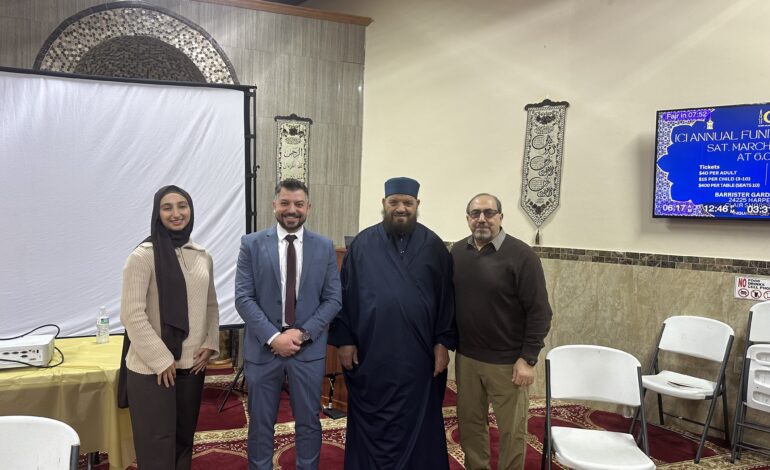
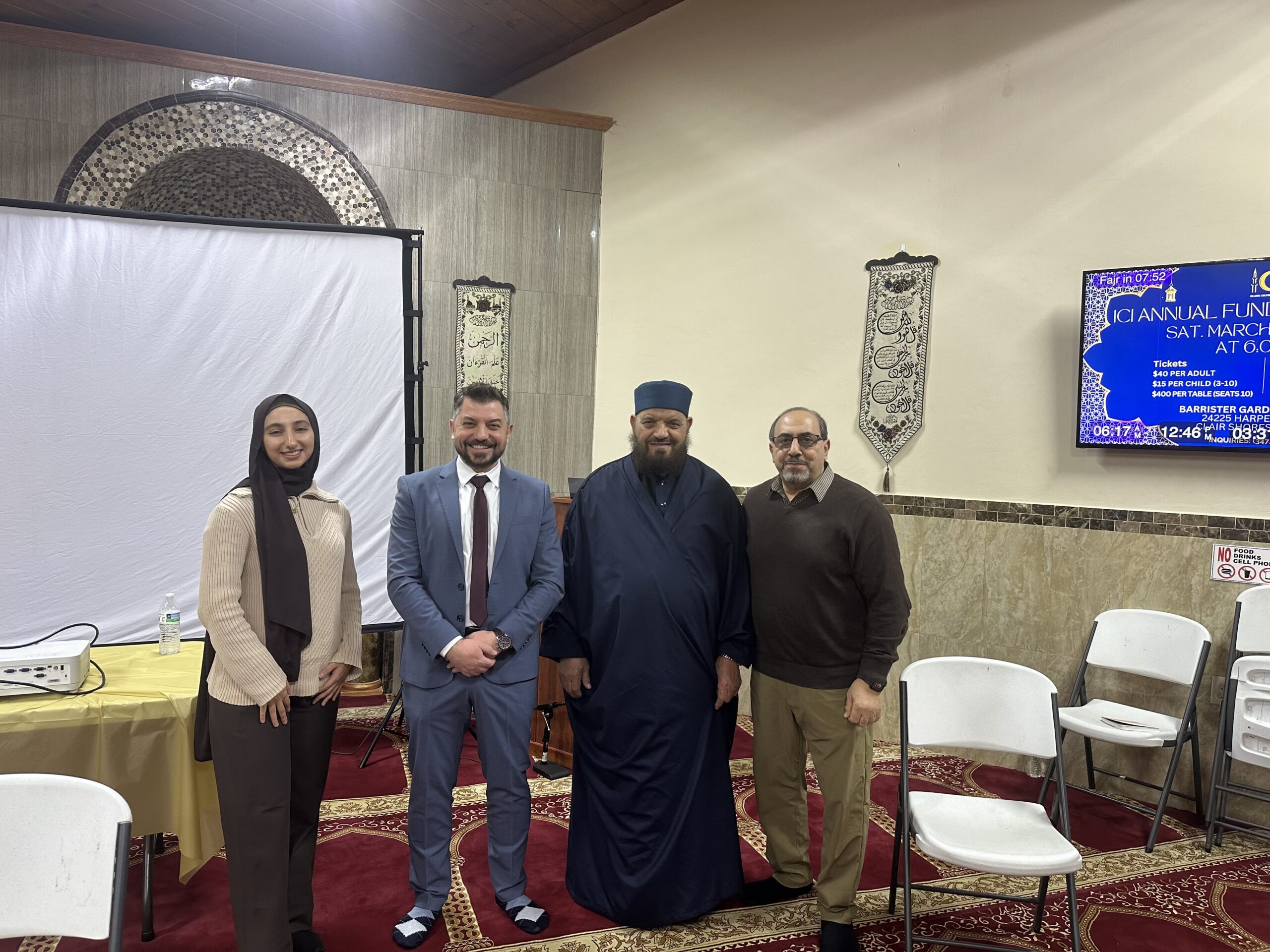
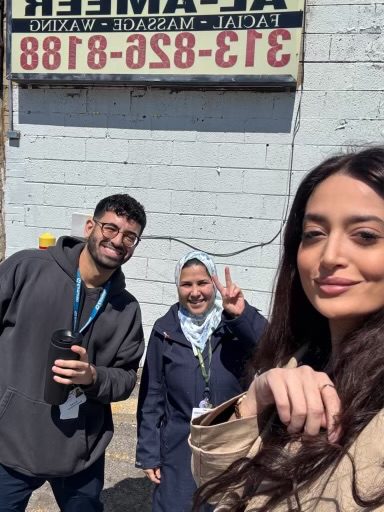
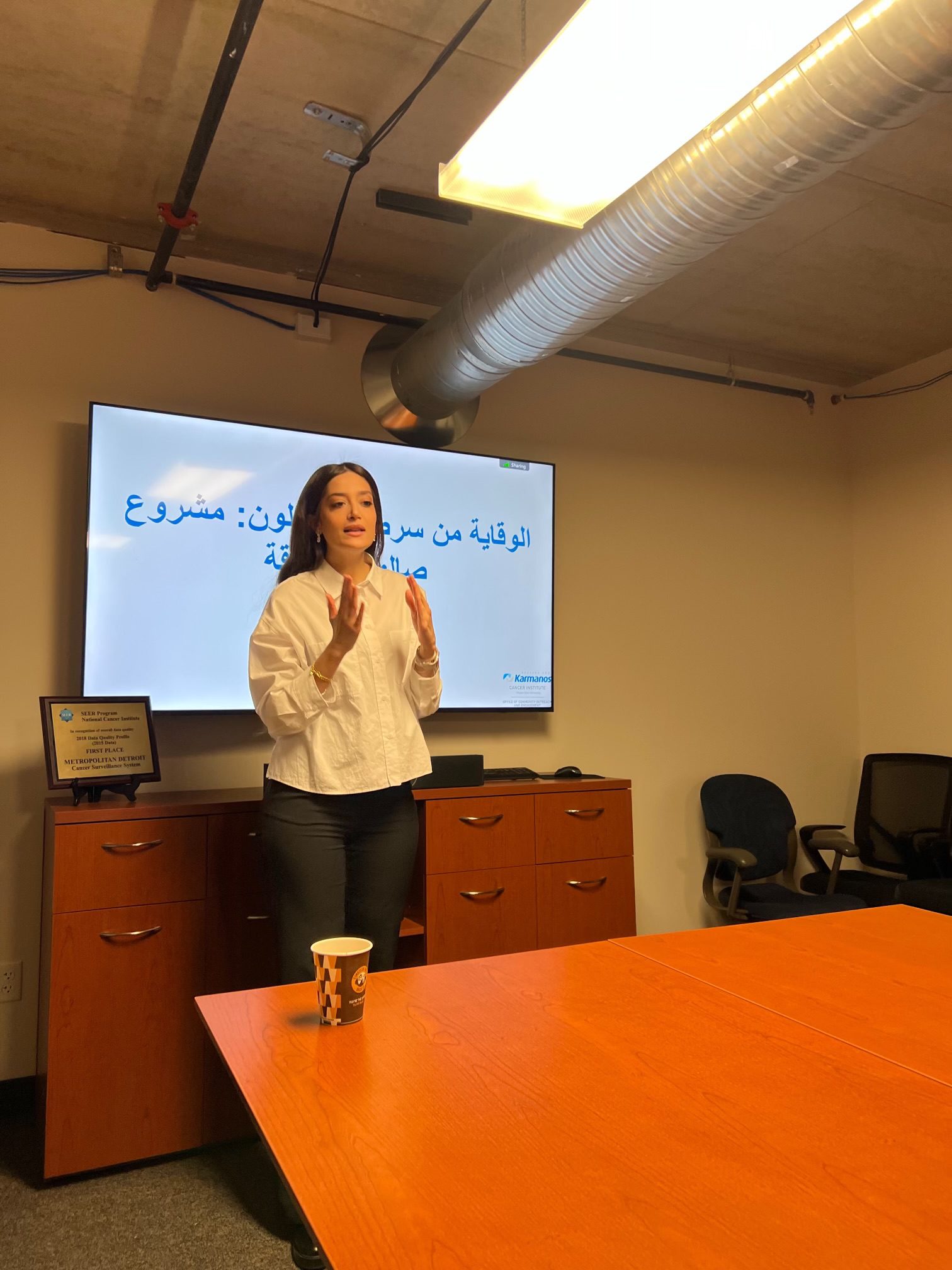
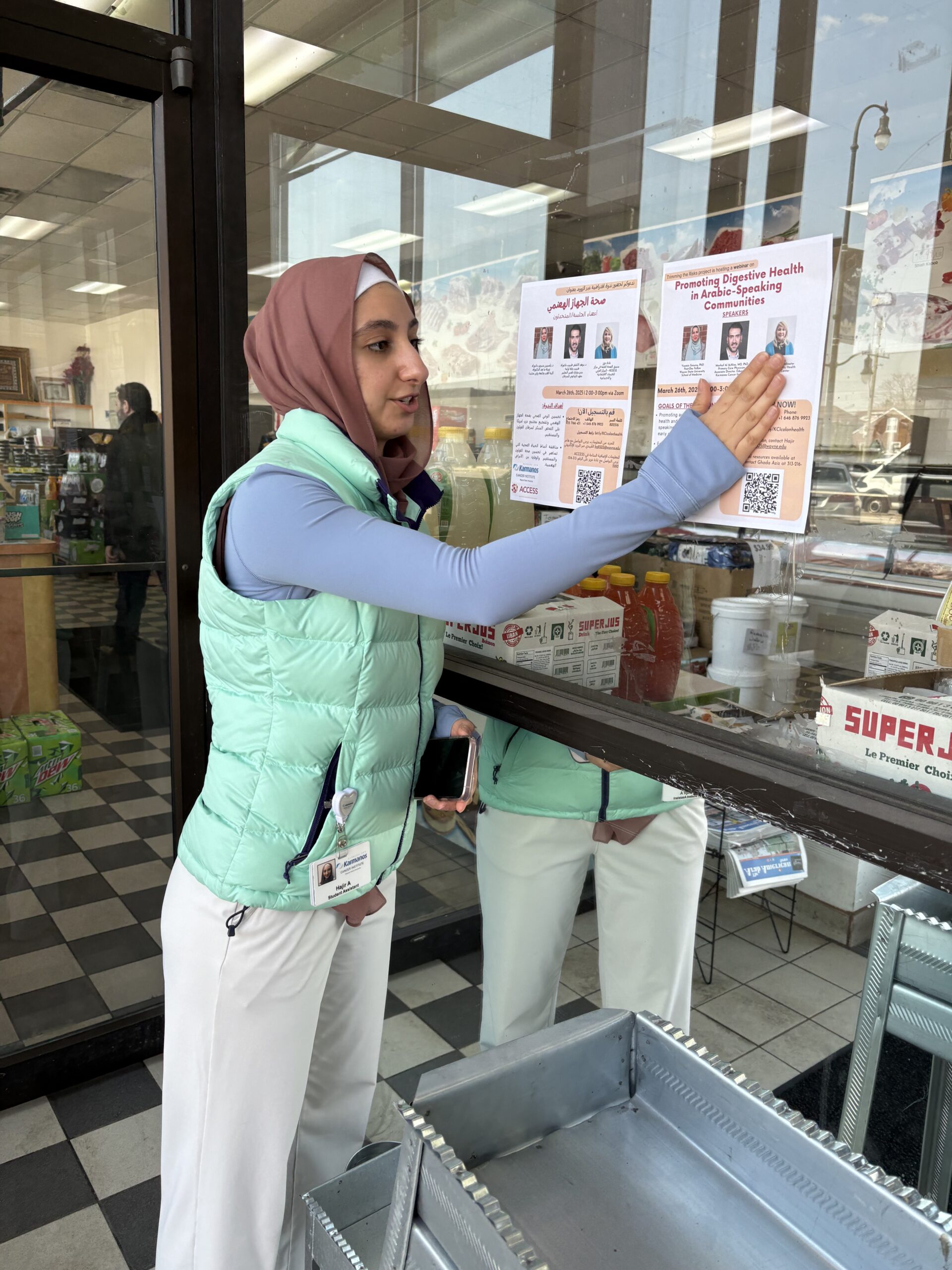
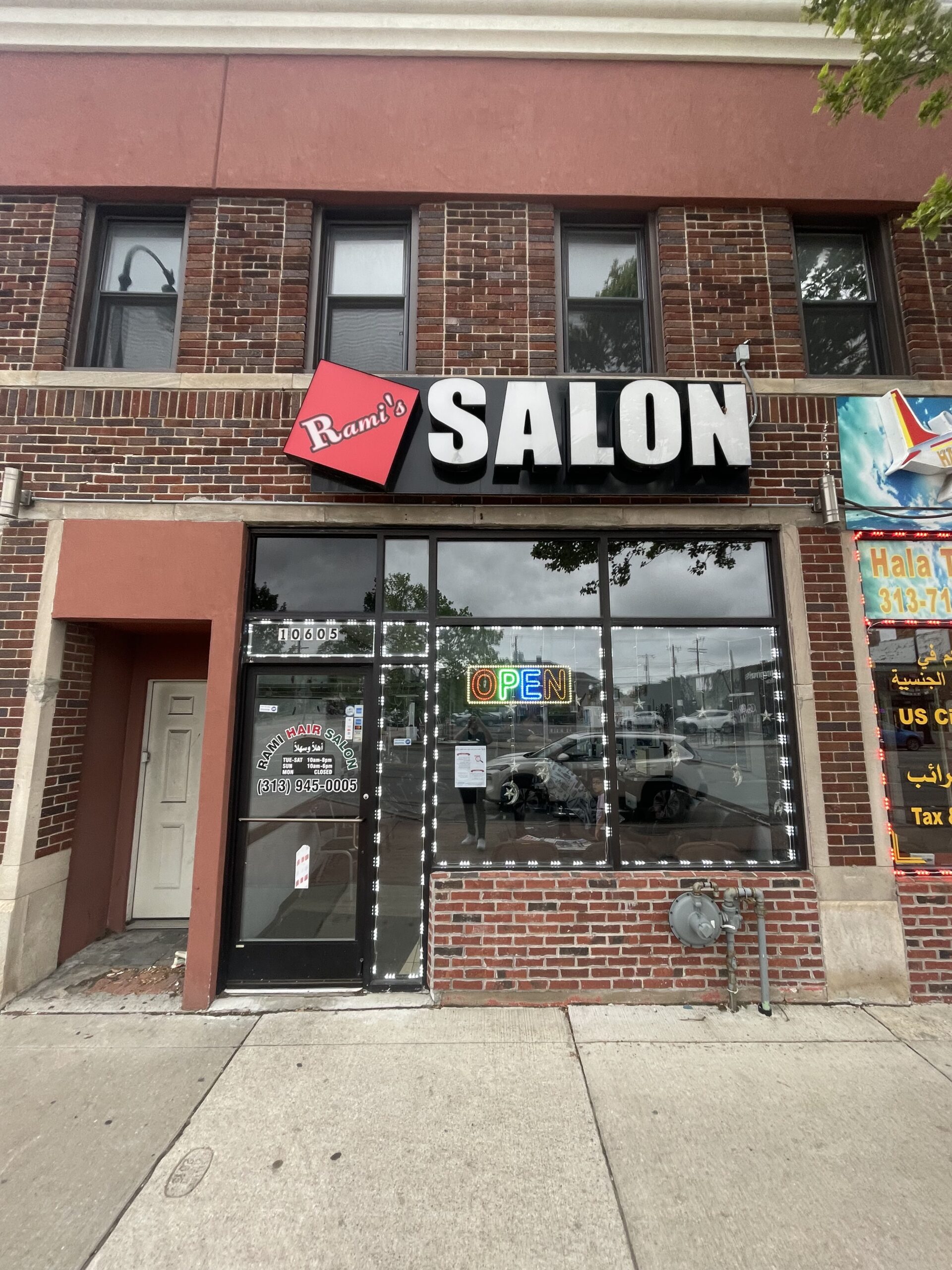
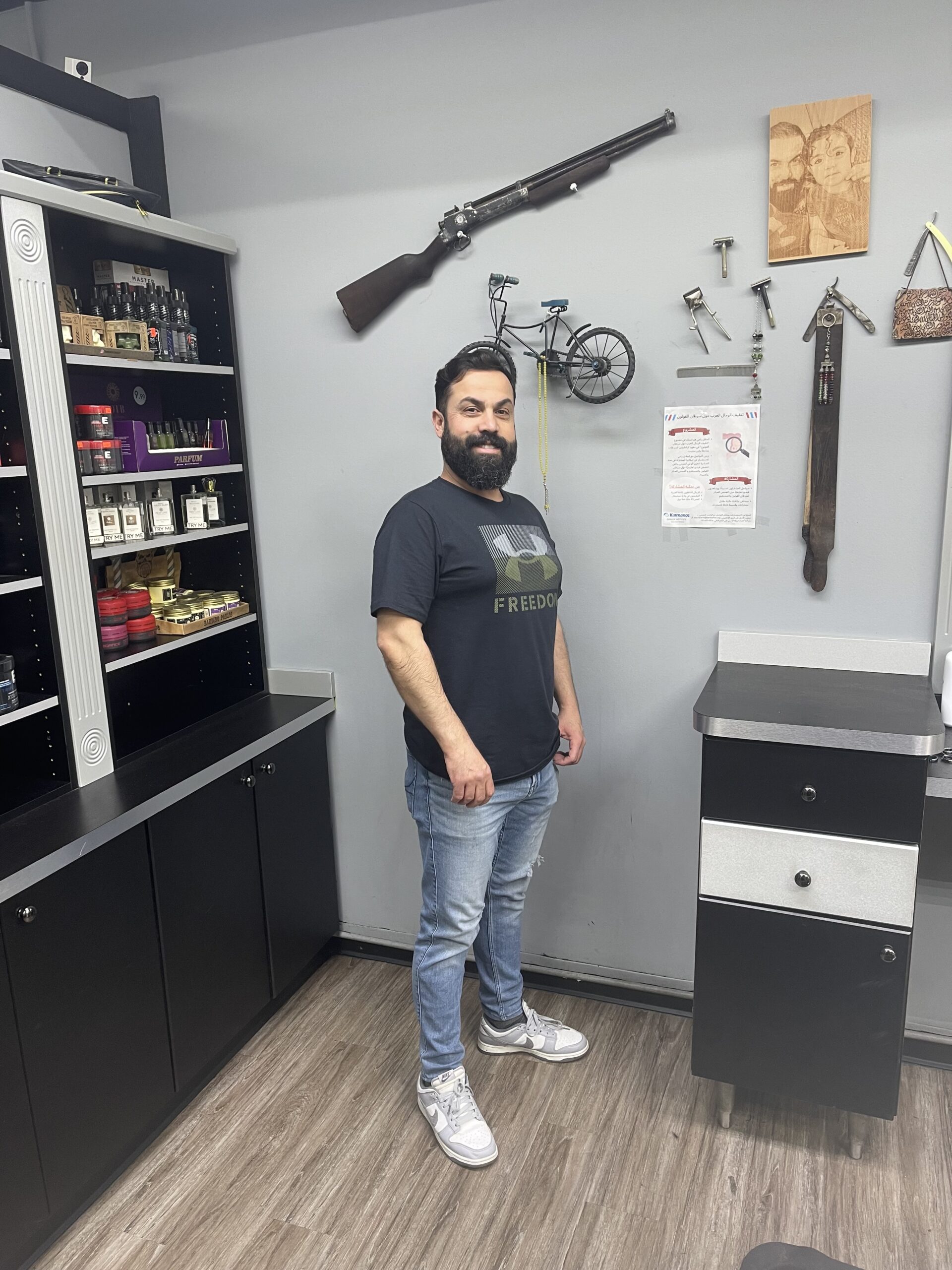



Leave a Reply